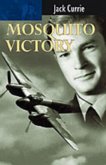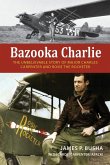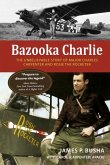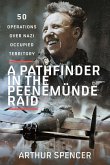In the early hours of 10 May 1940, Hitler's armed forces launched their invasion of France and the Low Countries. Shattering the tense peace of the Phoney War, German troops poured west over the borders of France, Belgium, the Netherlands and Luxembourg, supported throughout by the Luftwaffe. Having been deployed to the Continent on the outbreak of war in 1939, the aircrew of the RAF's Advanced Air Striking Force had long trained and planned for, as well as anticipated, such a moment. Consequently, at 17.15 hours on that fateful Friday Flight Lieutenant William Simpson took off at the controls of his 12 Squadron Fairey Battle having been ordered to attack enemy transport advancing near the town of Junglinster, some ten miles from Luxembourg. It would prove to be Simpson's only offensive sortie of the Second World War. As they rained their bombs down on the German column, Simpson and his crew were met by a ferocious hail of anti-aircraft fire. They pressed home the attack, scoring four direct hits on the enemy. Their Battle, however, was badly damaged and owing to a leak in the petrol tank Simpson was forced to make an emergency landing. As the Battle slewed to a halt, the cockpit quickly became enveloped in flames. Initially trapped in his seat, Simpson was rescued from the inferno by his two crew, his hands and face severely burnt. Initially helped to a nearby convent by Belgian peasants, Simpson was taken by ambulance back into France and handed over to French Army doctors at a casualty clearing station. At first it was not expected that Simpson would survive his wounds. Both of his eyelids had been burnt off, his nose was virtually destroyed, his eyes swollen and battered, and those of his fingers that remained had been reduced to charred talons. But against all odds, Simpson refused to give in to his shocking injuries. Over the next year-and-a-half, he endured treatment in no less seven French hospitals in both the Occupied and Unoccupied zones of France. Eventually the German and Vichy French authorities agreed to Simpson's repatriation on medical grounds. His passage home, which involved him travelling through France, Spain and Portugal, finally began on 10 October 1941. Back in Britain, Simpson soon found himself in the hands of the renowned plastic surgeon Sir Archibald McIndoe. The operations that followed over the next two years helped rebuild his shattered body. In One of Our Pilot's Is Safe, Simpson graphically reveals his moving journey from operational pilot in the Battle of France to membership of the famous Guinea Pig Club.
Hinweis: Dieser Artikel kann nur an eine deutsche Lieferadresse ausgeliefert werden.
Hinweis: Dieser Artikel kann nur an eine deutsche Lieferadresse ausgeliefert werden.








